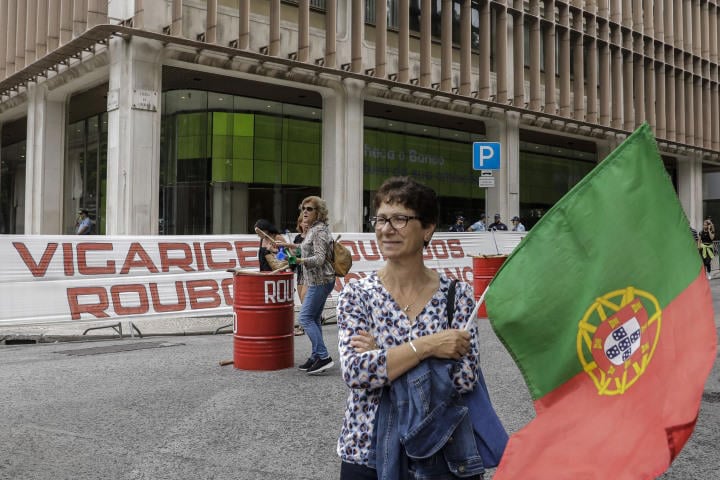Observador reminds the country this week that dozens of crimes relating to the most catastrophic banking scandal in Portugal’s history are headed for the wastepaper basket.
The BES/ GES banking collapse provoked damages of €933 million says Observador, and that’s a massively downwardly revised figure from the early days, and long before one quantifies the expense to taxpayers of creating the ‘good bank’ attributed to salvaging some of the damage.
As Observador explains, the very cause of the collapse of BES (the crimes of falsification of GES accounting) will expire at the end of the year – along with them “acts that provoked elevated damages to BES”.
Notwithstanding that the case, now almost 10 years old, is due to reach a court room next month, the time it has taken – and the time court cases take generally in Portugal – almost certainly ensures that very little in the way of ‘justice’ will come of it.
Outsiders will rail “this shows that crimes pays” – but some of those held responsible for the private bank’s demise might argue otherwise: Ricardo Salgado (the former president of the bank), is reportedly a shadow of the man he was, confused and suffering from Alzheimer’s disease, his cousin José Manuel Espírito Santo is dead, having suffered a stroke from which he never recovered: also dead is José Castella (GES former controller, and among those charged with banking infidelity) .
Other defendants may say their lives have been ‘ruined’/ reputations sullied (without the benefit of a timely trial). At very least, the case suggests Portugal’s ‘mega cases’ (like the one spinning into oblivion against former Socialist prime minister José Sócrates) are destined to go round and round in circles until they literally run themselves into a parallel universe.
Observador goes minutely through all the charges of falsification and fraudulent financing which are set to evaporate along the months leading up to the end of the year. True, there are some that won’t ‘prescribe’ until March next year, but even so, the likelihood of a court decision being finalised (after all the possibilities of appeal) are practically zero – and even if it was, the relevant prison terms would, due to passage of time, almost certainly end up being obsolete.
Is there any chance of these multiple (alleged) crimes not disappearing down the plughole?
Observador responds: “Only if there was a final judgement before the maximum limitation period was reached, in January or March 2025, would the crimes not be time-barred. This is highly unlikely, as the trial in the ‘Universo Espírito Santo’ case is scheduled for the end of May” (today further delayed until September) “and the timeframe for its conclusion will certainly not be less than two to three years”.
It will be a trial with 25 defendants – 18 individuals and seven commercial companies – several hundred witnesses “and a high level of complexity”, says the online.
“A trial similar to this one – but even less complex – was the main Banco Português de Negócios case, which lasted six years and five months.
And for what remains of the ‘Universo Espírito Santo case: are there further risks of a statute of limitations?
“If the panel chaired by Judge Helena Susano manages to ‘get a grip’ on the trial and complete it in a much shorter time than the six years of the BPN trial, led by her colleague Luís Ribeiro, there will be no risk of other crimes being statute-barred so soon in what remains of the case”, says Observador.
“In reality, and only taking into account the crimes charged against Ricardo Salgado, there are offences of criminal association (1), active corruption in the private sector (12), qualified fraud (29), money laundering (7) and market manipulation (1).
“All these offences carry prison sentences of up to five years but less than 10 years, which means that the formula for the maximum limitation period is as follows: 10 years (limitation period) + 5 years (half the limitation period) + 3 years (suspension) = 18 years.
“This means that the maximum limitation period is 18 years and will be reached by 2032”.
But as the country has repeatedly heard through Ricardo Salgado’s defence team, their client is in no physical state to plead, let alone face the consequences if found guilty. Thus, the looming trial is looking less and less like a process that could possibly deliver ‘justice’, even if the alleged crimes are proven.




















